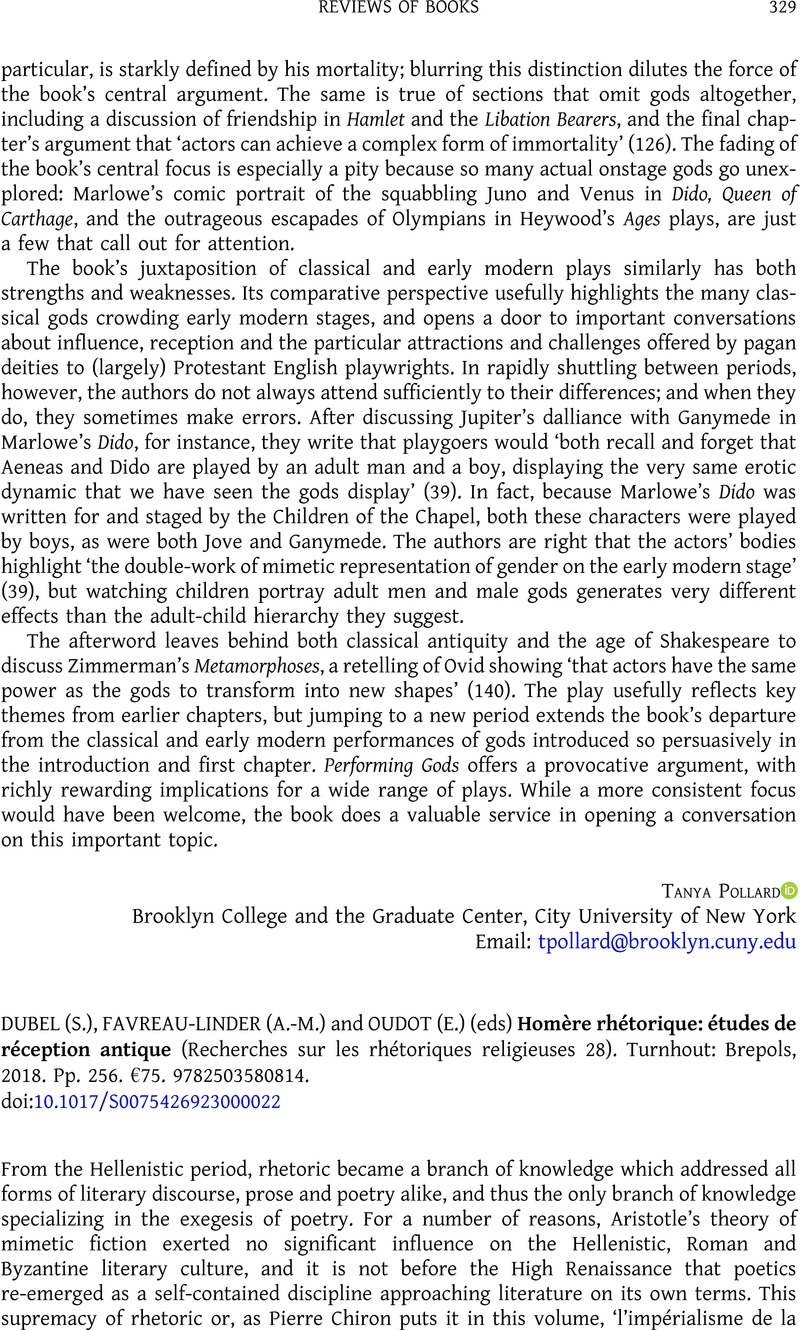No CrossRef data available.
Article contents
(S.) DUBEL, (A.-M.) FAVREAU-LINDER and (E.) OUDOT (eds) Homère rhétorique: études de réception antique (Recherches sur les rhétoriques religieuses 28). Turnhout: Brepols, 2018. Pp. 256. €75. 9782503580814.
Review products
(S.) DUBEL, (A.-M.) FAVREAU-LINDER and (E.) OUDOT (eds) Homère rhétorique: études de réception antique (Recherches sur les rhétoriques religieuses 28). Turnhout: Brepols, 2018. Pp. 256. €75. 9782503580814.
Part of:
Reception and history of scholarship
Published online by Cambridge University Press: 04 May 2023
Abstract
An abstract is not available for this content so a preview has been provided. Please use the Get access link above for information on how to access this content.

- Type
- Reviews of Books
- Information
- Copyright
- © The Author(s), 2023. Published by Cambridge University Press on behalf of the Society for the Promotion of Hellenic Studies


